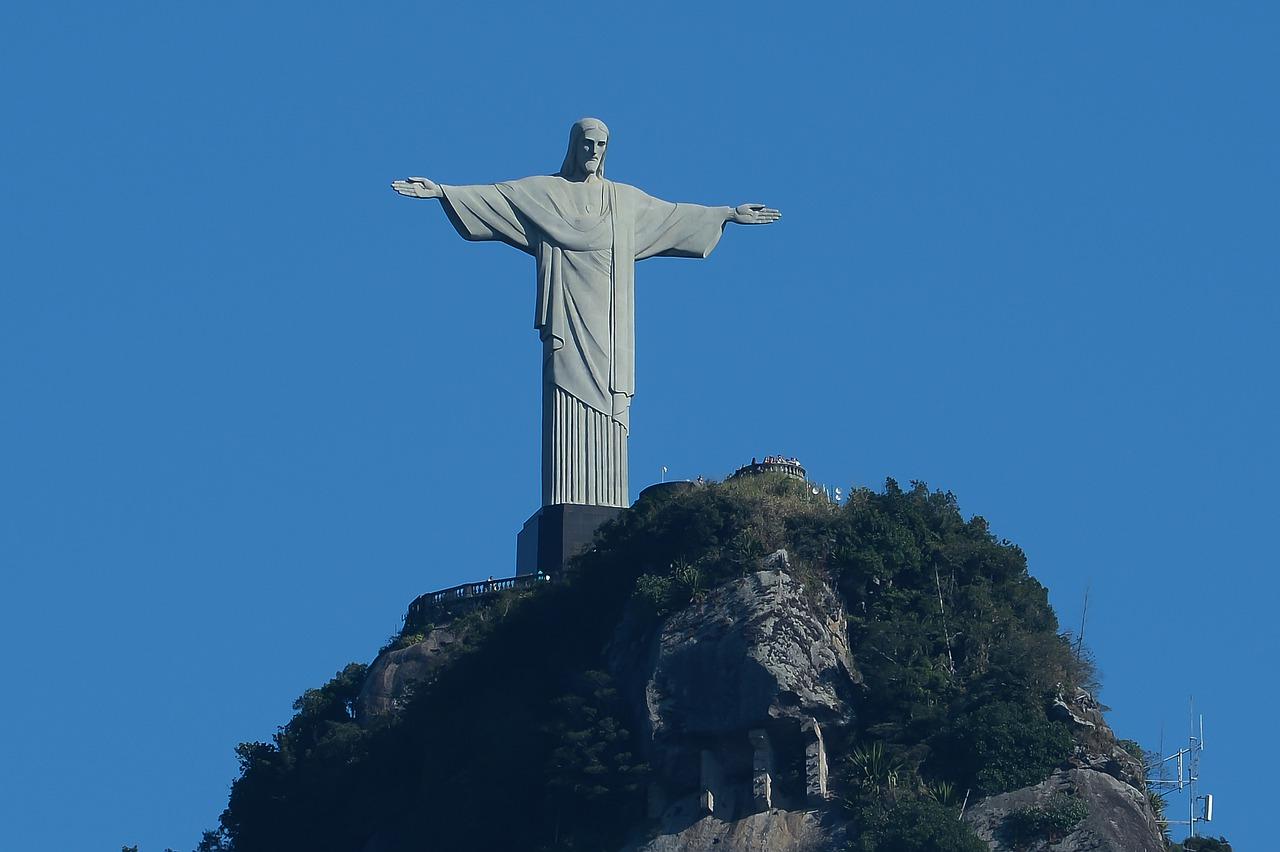SÃO PAULO – On the eve of its 90th anniversary, Rio de Janeiro’s Christ the Redeemer statue has been at the center of numerous conflicts between the Church, the government agency that manages the surrounding natural reserve, and the owners of the few shops located in the monument’s area.
Inaugurated on October 12, 1931, after five years of construction, the 98 feet-high-statue – which was entirely financed by the Archdiocese of Rio de Janeiro and other donors – was built on top of Corcovado Mountain, an area which has been officially granted by Brazil’s federal government to the Church.
In the 1960s, the government created the Tijuca National Park with the goal of protecting the vast mountainous forests surrounding the statue.
Recently, there have been clashes between the Church and the agency which administers the park, the Chico Mendes Institute for Biodiversity Conservation (ICMBio).
“The Church is traditionally a conflict mediator. In this situation, however, it has been part of the conflict. It is about time to correct those problems,” Father Omar Raposo, rector of the Christ the Redeemer Sanctuary, told Crux.
Raposo claims that the ICMBio has for years been disrespecting the Church’s right to freely use the area around the statue. The Institute’s security officers frequently create obstacles to the Sanctuary’s workers and priests when they try to enter the park and reach the chapel, which is located at the foot of the monument.
On September 11, Raposo was impeded by security officers as he prepared to celebrate a baptism. The child’s family was also forbidden from entering the monument area. It took two hours before the priest was finally authorized to go to the chapel.
The ICMBio claims that for security reasons all vehicles must be properly identified before entering the Tijuca park and the process can take time, but Raposo said the state agency is trying to “make impracticable the Church’s operations at the Christ Sanctuary.”
“I cannot be impeded to get into the monument. That statue is owned by the Church. We have to denounce those crimes of abuse of authority and religious intolerance,” he said.
On September 3, Raposo had been stopped from going to the monument carrying food and beverages that was to be served to churchgoers after a morning celebration. The priest said that he wasn’t even allowed to take water to the chapel.
“There is a group of Tijuca National Park workers that have an intolerant behavior. They oppose the presence of a religious sanctuary inside of a nature reserve and thus create obstacles,” said Claudine Milione Dutra, the archdiocese’s legal director.
She told Crux that the actions by the ICMBio workers have been reported to the police and that an inquiry is being carried out.
“ICMBio’s President heard what happened and was indignant. He came to Rio de Janeiro and talked to us. He also determined that an internal inquiry should be open,” Dutra added.
The prohibition of taking water and food to the chapel is not unproblematic, according to the archdiocese.
The few shops traditionally operating in the area have been recently closed by the ICMBio and their owners were banned from the area, even though some of those businesses had been in the hands of the same family for four generations. Now, tourists and churchgoers cannot even buy a bottle of water while they visit the Christ statue.
“All that land was transferred to the Church in 1931, but the ICMBio managed to expel the shop owners after an injunction was granted in its favor,” Dutra explained.
The archdiocese has been trying to legally invalidate that decision so the shops can reopen.
“We think that the ICMBio does not have the right to take over those stores, especially because it has not invested the income generated by them to improve the area,” she declared.
The Church has never charged the visitors of the Christ monument any fee, but the ICMBio charges to enter the state park, which is necessary in order to access the statue.
None of that money was ever given to the archdiocese for maintenance of the statue until last year.
At that time, the ICMBio finally began to transfer part of the ticket sales to the Church, which is responsible for the conservation of the statue. According to the sanctuary, the maintenance expenses can reach up to $1.89 million each year.
However, after the Church joined the legal suit in favor of the shop owners, the ICMBio ceased transferring the money. Currently, tickets including transportation to the Corcovado cost up to $20, but the Church was being paid only 28 cents. Before the pandemic, 100,000 people a month visited the statue during the high season.
“The Church owns the monument, but the State – which is lay – makes money off it. How is it possible?” Raposo said.
According to Claudine Dutra, the archdiocese would rather people not be charged at all to access the sanctuary.
The ICMBio sells tickets to people who are visiting the Tijuca National Park, but most of them are really heading to the statue.
The problem, said Dutra, is not the fact that the ICMBio is charging visitors, but that it does not invest on the statue’s conservation.
“We are talking about a new joint management plan with the ICMBio. They will only take care of environmental aspects and we will go on with our religious activities,” she said.
Despite the challenging situation, Raposo said is excited about new partnerships established by the sanctuary with national and international companies and professionals in order to work on the statue’s restoration and on a digital collection of documents connected to its history.
“The Christ the Redeemer statue is the only wonder of the world that is owned by the Catholic Church. That is why it is and should always be truly universal,” he said.












